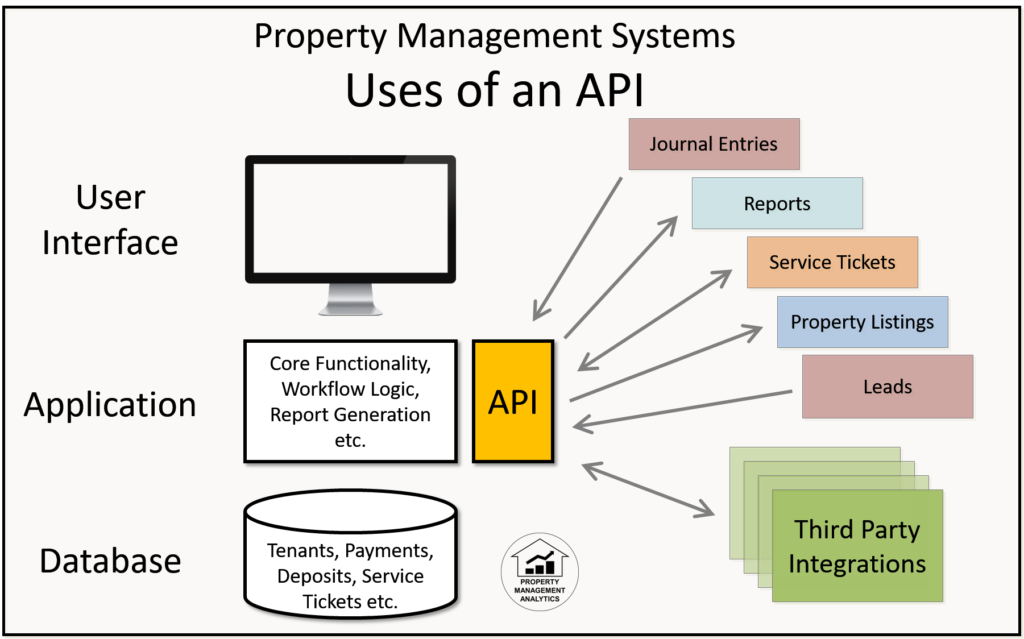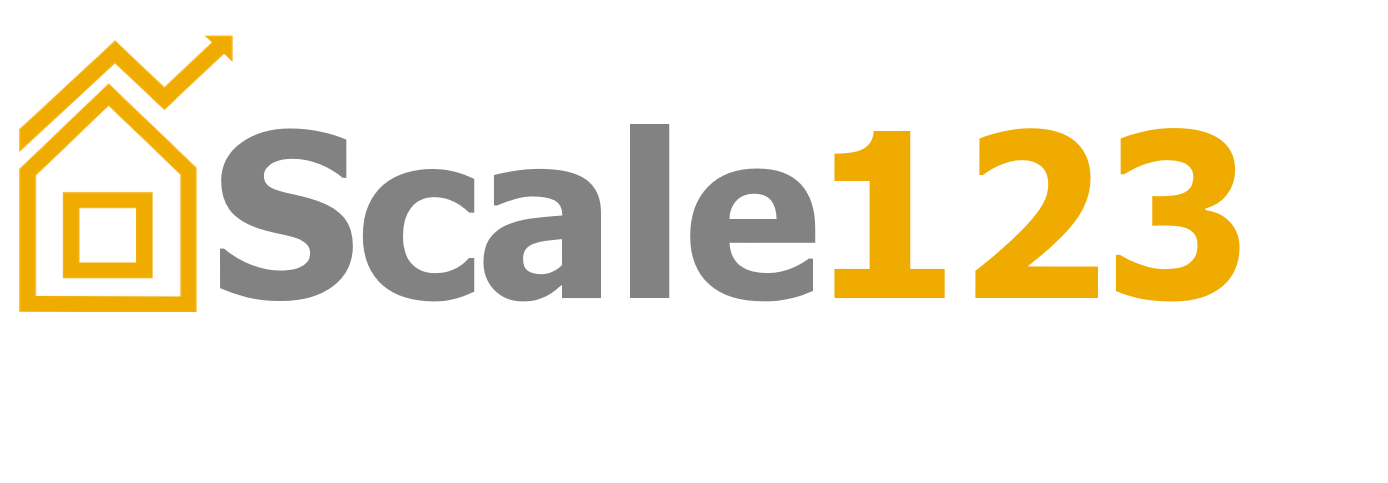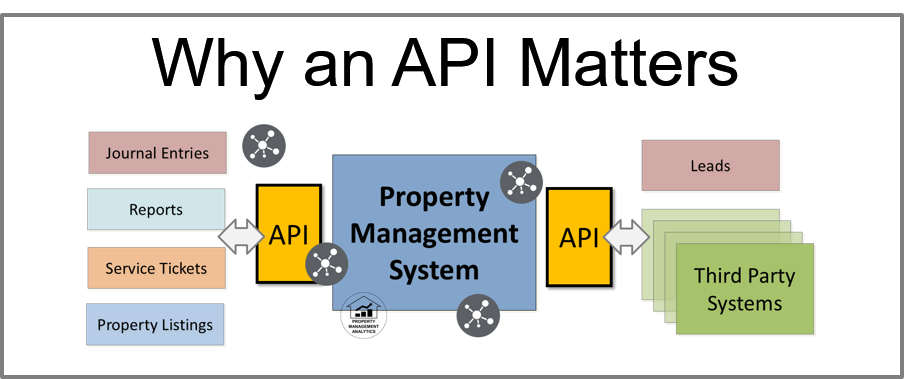If you are a property management executive, why should you care if you have a property management system with an API? In this post I am going to describe what an API is, and what are the pros and cons of having an API. And I am going to try and stay away from techno-speak.
An API is like a door for getting data in and out of your property management system. API stands for Application Programming Interface, and yes, in most cases some coding or configuration is required to use an API. If you have a property management system with an API, you can automate many tasks that might otherwise have to be performed manually. Also, having a property management system with an API opens up possibilities that other systems (“closed systems”) cannot offer.
Examples
See the diagram below. Here are some examples of what you can do if you have an API:
- Type journal entries in Excel and have them created in your property management system using the API
- Download leads from your listing service and have them uploaded into your property management system via the API (and account for duplicates, mismatched email addresses or phone numbers etc.)
- If you use another system for managing maintenance services, you can automatically send property and tenant data to the other system via the API, instead of having to maintain two lists of tenants and properties
- If you are using several sites for listing your properties, such as Craigs List, Free Rental Site, Trulia, Zillow, AHRN etc., you can have your listings automatically pushed to these sites instead of manually entering them
- If you need reports that combine data from multiple systems (for example, if you don’t manage payroll or do accounting in your property management system), then you can use the API to pull data from your property management system and then combine it with data from other systems to create reports.
Why Isn’t Every Property Management System With an API?
Offering an API in their property management system is a strategic business decision for the software vendors. Here are some of the vendors’ considerations:
- Does having an API give us a competitive advantage?
- Should our property management system be the best in class for all functions (Accounting, Service Management, Leads, Marketing, Leasing ….), or be the best in few functions and integrate with third parties for the rest?
- Does our property management system’s technology enable the development of an API?
Pros and Cons for your Property Management Company
The pros:
- Automate manual tasks
- Create powerful reporting capabilities, including analytics and your property management reporting database
- Integrate with third parties who are good at their functions (for example, if your property management system’s maintenance module isn’t the best, you could use one offered by a third party that integrates with yours).
The cons:
The reason you use an API is because all the functionality you use to run your company isn’t contained in a single property management system. That’s not a bad thing, but here are some cons:
- Your team has to use multiple systems (which means multiple subscriptions, training courses, user IDs etc.)
- Your data is spread out across many systems
I hope this has given you a high level understanding of what an API is and why having a property management system with an API would be essential for your business.

The above diagram shows the property management system based on the software architecture discussed in an earlier blog post. The API enables one-way and two-way connectivity to external systems.



It would be interesting to see what a real world application of this is. See a company that has integrated through an Open API the leads/sales crm type function into their enterprise system. It’s always surprising to me that the enterprise systems used by most in property management don’t have a sales/marketing crm type function already integrated. Some of the systems have some pretty nice reporting abilities but lack work flow, check list, etc. for practical use and the interface is sometimes clunky. Great article.
Daniel, thank you for sharing your thoughts on this article. Businesses sometimes have to choose between using one system that provides most of the functionality they need, or to use the best-in-class system for each function. When they go with the best-in-class approach, they end up creating silos of data. This is a common problem.
Software vendors have a similar decision: Do we build CRM capability to compete with Salefroce.com or should we simply integrate with Salesforce?
I describe in this video how companies deal with data silos: https://youtu.be/38sRq3Wl_LA
Best,
Saad